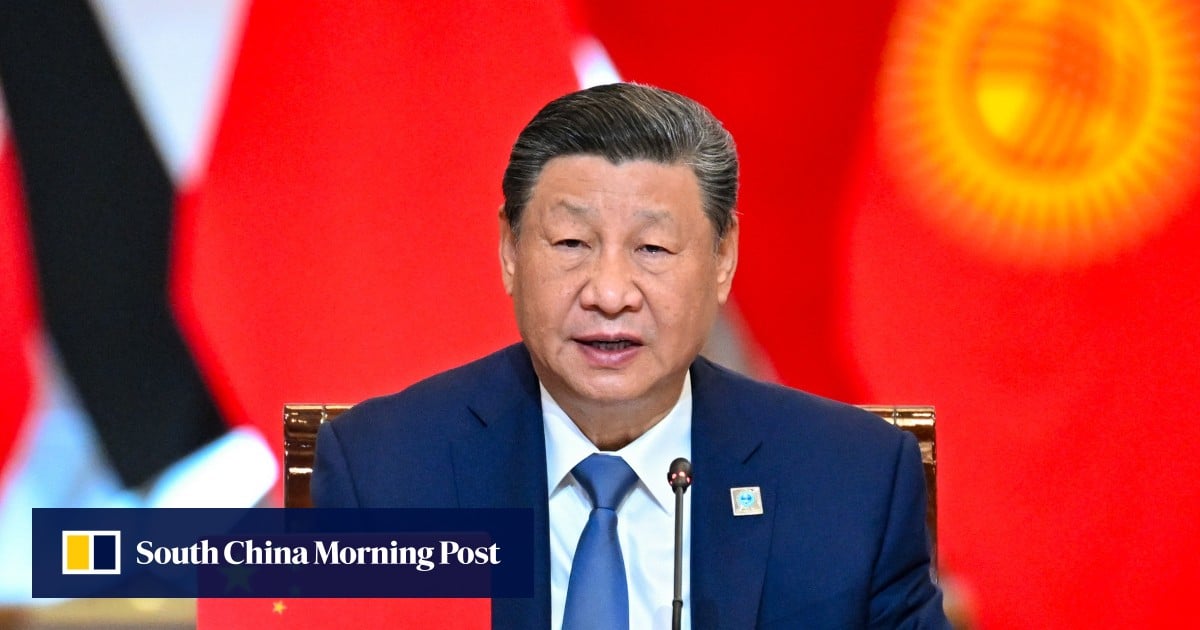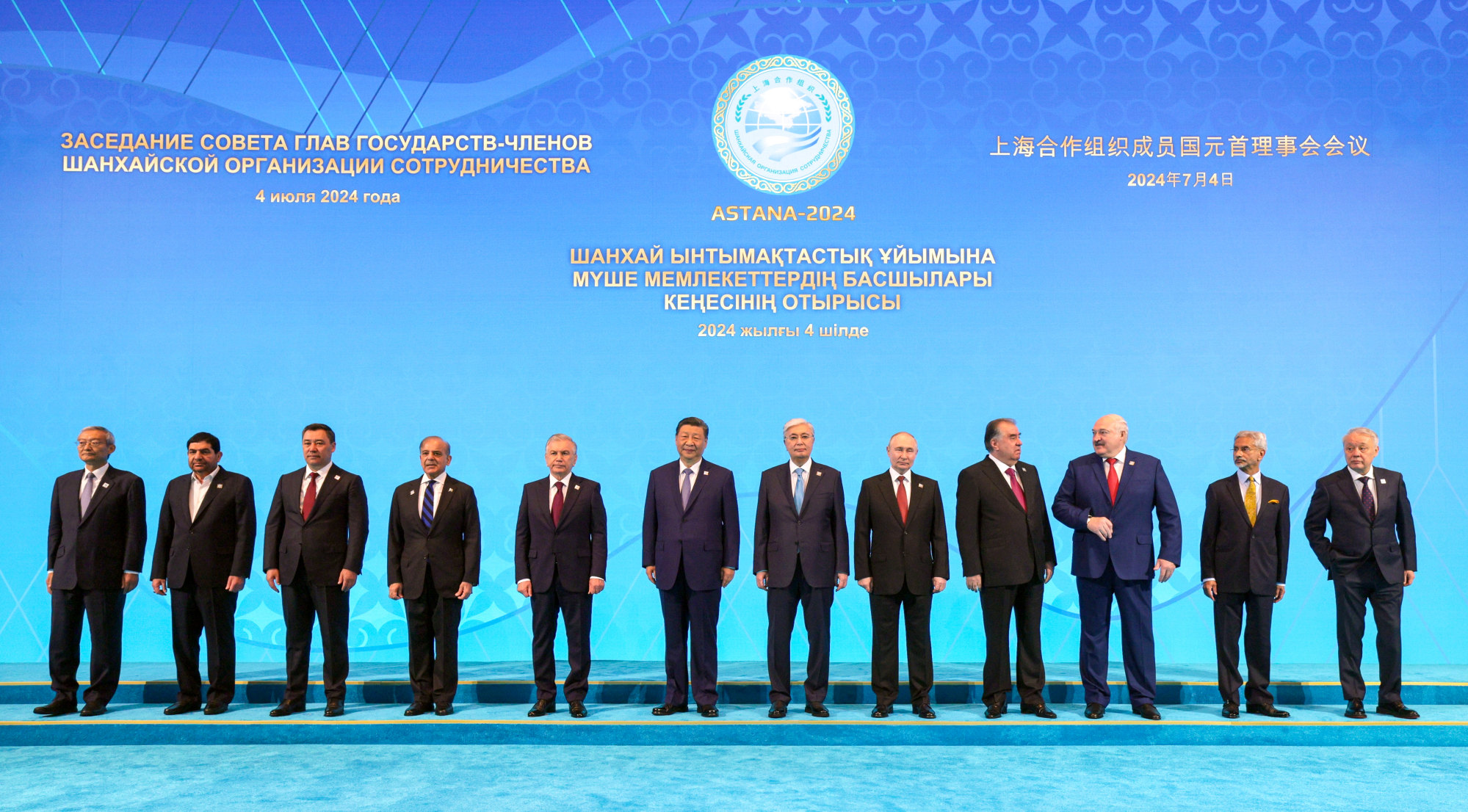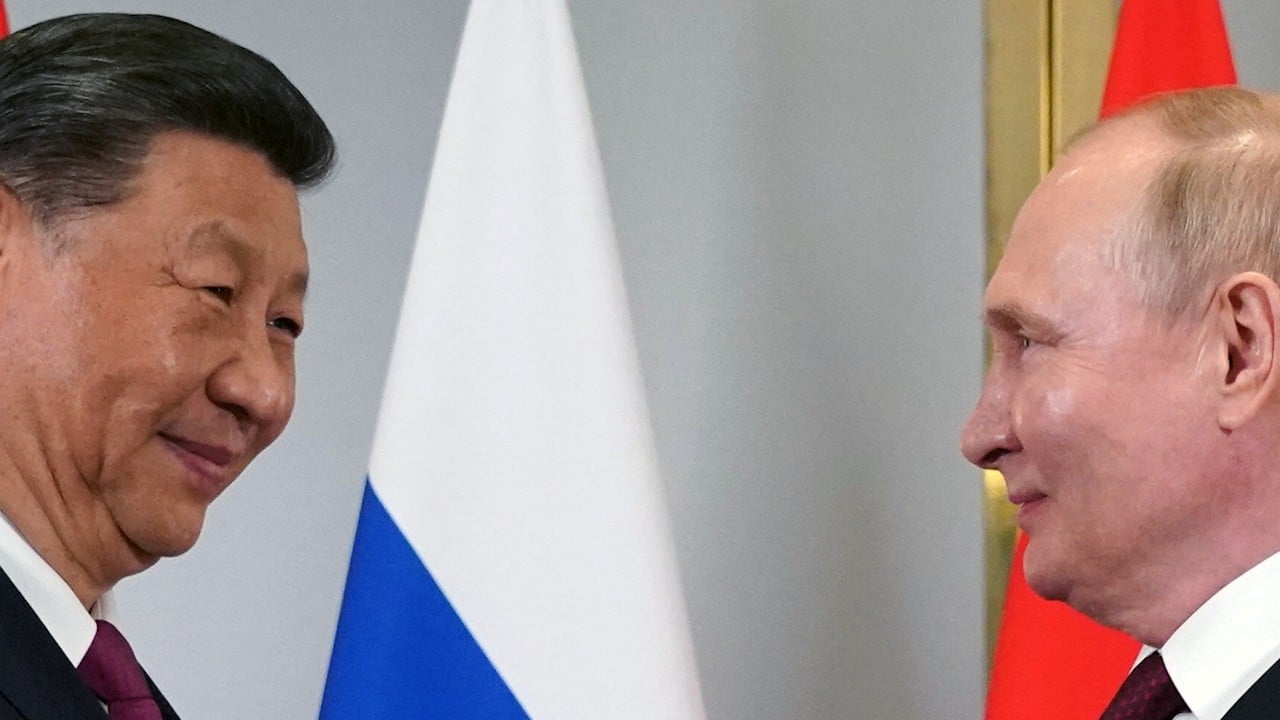World
Xi Jinping warns SCO to ‘resist external interference’ in veiled swipe at US

Xi spoke to his Russian counterpart Vladimir Putin on the sidelines of the summit on Wednesday, their fifth meeting of the year.
Putin, who has been shunned by the West since invading Ukraine, hailed a “golden era of ties between China and Russia” at the meeting and said the relationship is “being built on the principles of equality, mutual benefit and respect for each other’s sovereignty”, according to the Russian Tass news agency.
Without naming specific countries, Xi warned on Thursday that the SCO members faced the “threats, risks and challenges” that come from “the cold war mindset” and repeated other coded references favoured by Beijing to criticise the US.
He also urged member states “safeguard the security baseline [and] preserve the right to development and consolidate solidarity”.
Aside from security, the Chinese leader also pledged to strengthen economic and scientific cooperation among members, urging them to support innovation, maintain stable supply chains, boost regional growth and “promote the realisation of our common development goals”.
Currently, its members account for more than 40 per cent of the world’s population and around 20 per cent of global GDP, with the latter figure likely to expand further, driven by the twin engines of China and India.
The bloc was initially set up with the aim of tackling common security challenges faced by China, Russia and the Central Asian republics following the collapse of the Soviet Union.
From an original membership of six in 2001, its number has since expanded to 10, taking in India and Pakistan in 2017. More recently Iran and Belarus, the latter having its full membership confirmed at this year’s summit.
Several Arab states allied with the US, including Egypt, Saudi Arabia and other Gulf states, have also become SCO “dialogue partners” in recent years, a move widely seen as an attempt to avoid dependence on the US.
The membership of Iran and Belarus has fuelled suspicion among the US and its allies that the bloc will champion an anti-Western agenda, even if India has moved closer to Washington in recent years amid the ongoing border dispute with China.

Indian Prime Minister Narendra Modi was a notable absentee from this year’s summit in the Kazakh capital Astana, instead being represented by Foreign Minister Subrahmanyam Jaishankar. However, the Kremlin has said Modi will be visiting Russia next week for talks with Putin.
Li Lifan, deputy head of the SCO centre at the Shanghai Academy of Social Sciences, said the perception that the group is “anti-Western” is “nothing new”.
He described it as “a narrative that has long been planted in the West throughout the SCO’s development process … It was called the ‘Eastern Nato’ when the organisation was established”.
Li added: “The expansion to full membership [status] often takes a long time to process, for example Iran, whose full membership process was halted several times due to its nuclear issues.”
According to Li its current functions cover “politics, the economy, security, and culture” and it remained to be seen how deeply Belarus would be involved in the bloc, given that it is a long way from its central Eurasian core.
Zhu Yongbiao, a professor at the School of Politics and International Relations at Lanzhou University, said that the SCO “cannot be compared to Western organisations such as Nato or the Group of 7”.
However, he argued that the organisation has achieved its goals, saying: “The SCO’s position and goals are distinctly different from those of political and military organisations such as Nato. The nature of its functions was, from the beginning, very different.”
Zhu added that the bloc will continue to expand and develop despite pressure from Washington.
“The SCO needs to expand, because, in the process of expansion, the SCO has developed and grown,” he said. “Some of the problems that the SCO usually faces, such as the inability to implement policies, cannot be solved without expansion.”








:max_bytes(150000):strip_icc()/roundup-writereditor-loved-deals-tout-f5de51f85de145b2b1eb99cdb7b6cb84.jpg)


